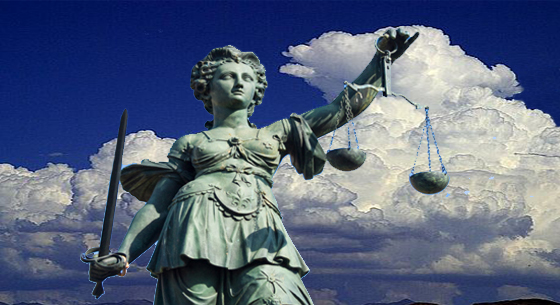August 15, 2012 I attended Provincial Court by way
of special Appearance to challenge the Jurisdiction of the Court and find out on
the record if the Court had a Notice of Prosecution before her or not. A Jurisdiction challenge by way of special
appearance must be done on first appearance and every other appearance before a
plea is entered. Please see Special Appearance below.
I asserted my question several times and instead of answering
me directly Judge Mary Jane Richards asked the Solicitor representing the City
if I had been provided disclosure or not. The Lawyer answered that I had not
been provided disclosure yet. The Judge then Ordered the Solicitor to have the
disclosure prepared and provided to me, scheduling another hearing, September
26, 2012 at 1:30 pm. Please Note, the regular practice of the City of Fredericton
is to not provide disclosure unless someone requests it, even though they are
required by law to provide this. Please see Full Answer and Defence below.
Courts have a duty to correctly apply the Law. See
Pratten v. British Columbia (Attorney General), 2011 BCSC 656 (CanLII) Para.
218 – 335, 239 and 295, also, in R. v. Dyment, [1988] 2 S.C.R. 417, Justice La
Forest J. para. 15 to 23 “this Court has made it clear… The function of the
Charter, …is to provide ... for the unremitting protection of individual rights
and liberties". This erroneous and flawed procedure if allowed to continue
will bring the administration of justice into disrepute, furthermore, is a
violation of Charter rights of equality under the law.
When asserted my question “is there a Notice of
Prosecution before you today”, the judge refused to answer and Ordered the
Sheriffs to have me removed. I was literally dragged by my heels from the Court
room and then escorted out of the building.
Full
Answer and Defence
Please Note section 31 of Provincial
Offences Procedure Act, S.N.B. 1987, c.P-22.1 (Stable link to this version:
http://canlii.ca/t/51vgm)provides
is as follows:
31
The
defendant is entitled to make a full answer and defence.
This
constitutional right is protected by s. 7 of the Charter, and helps
to guarantee the accused’s ability to exercise the right to make full answer
and defence. The duty to disclose is triggered whenever there is a
reasonable possibility of the information being useful to the accused in making
full answer and defence. The relevant information must be disclosed
whether or not the City of Fredericton intends to introduce it as evidence at
trial, before election or plea. Moreover, all statements obtained from persons
who have provided relevant information to the authorities should be produced
notwithstanding that these persons are not proposed as witnesses.
If a
substantial amount of evidence is not disclosed, and it is relevant nature of
that evidence, of which the prosecution could not have been unaware, it must be
acknowledged that the accused were the victims of a serious infringement of
their right to disclosure of evidence.
Since the
verdict in Stinchcombe, the prosecutors cannot rely on uncertainties in
the law relating to the disclosure of evidence to justify the failure to
disclose. A review of the case law confirms that the duty already existed
prior to Stinchcombe as a component of the accused’s right to a fair
trial and to make full answer and defence. In addition, the duty arises
naturally from the Crown attorney’s role as an officer of the court in our
criminal justice system as well as to Solicitors representing the City of
Fredericton in prosecution of bylaw matters.
The Solicitor for THE CITY OF FREDERICTON has a duty
under s.5(a-b) of The Law Society Act 1996, SNB, to protect the public, to
uphold justice and to protect the rights and freedoms of “all persons” and,
since solicitor representing THE CITY OF FREDERICTON is therefore an instrument
of public legislation, subject solicitor is also bound by the Charter. Please
Note that failing to follow proper procedure is a violation of the Applicant’s
section 15(1) and 7 Charter rights and freedoms. Reference: New Brunswick
(Minister of Health and Community Services) v. G. (J.), 1999 653 (SCC) Para 56
– 109.
Special Appearance
By making an "appearance" in response to a
lawsuit, the Court will take this to be an unqualified submission to the
personal jurisdiction of the Court, a defendant is in effect submitting
to the jurisdiction of the court and waiving any defects, if any exist, in
personal jurisdiction. A defendant who wishes to challenge jurisdiction
may do so by making a special appearance which is limited to the issue of
jurisdiction. Therefore, when making a special appearance, should the non
- attorning party raise any other issues or claims he has made a general
appearance and waives any defects in jurisdiction.
To prevent this from happening, a defendant must
make a special appearance before the court. A special appearance is made, in
this instance, for the limited purpose of challenging the sufficiency of the
personal jurisdiction et al., of the court. The court must then determine
whether it has jurisdiction over the defendant.
The Court must take Judicial Notice that
Jurisprudence has established, that a Provincial Court has no jurisdiction
unless jurisdiction can be proven to exist, as opposed to a superior Court,
where jurisprudence has established that jurisdiction is assumed to exist
unless the contrary is shown.
Maxim - Bonum judex secundum aequum et bonum
judicat, et aequitatemstricto juri praefert. A good judge decides according to
justice and right, and prefers equity to strict law. Co. Litt. 24.
When a Defendant makes a special appearance in
Court, he does appear in the Court, but stipulates that his appearance is
strictly for the purpose of contesting the court's personal jurisdiction, et
al., over him; therefore any findings made in the interim decision are in
conflict with establishd jurisprudence.
Reference: In Cabaniss v. Cabaniss, 2006 BCSC 1076
(CanLII) Mr. Justice I.H. Pitfield acknowledge the application of entering a
special appearance in the proceeding.
[8] Mr. Cabaniss did not file an answer to the
plaintiff’s complaint. He
admits that if he had done so, he would be taken
to have attorned to the
jurisdiction of the Virginia court, which he was
not prepared to do. He retained counsel for the purpose of entering a special
appearance in the proceeding in Virginia. In the absence of evidence with
respect to the actual effect of such an appearance, I conclude that it permits
a party to challenge jurisdiction without attorning to the jurisdiction of the
court. …
Reference: Ontario v. Mar-Dive Corp., 1996 CanLII 8103 (ON SC) Justice LISSAMANJ. stated that a restricted or special appearance procedure was available to challenge subject-matter jurisdiction without attorning to that jurisdiction.
[191] … Ontario admits knowledge of the pendency
of the United States
District Court action and states that it chose
not to appear despite the fact that a restricted or special appearance
procedure was available to it to challenge subject matter jurisdiction without
attorning to the jurisdiction of the United States courts.
Attorn or Attornment is defined as “To consent,
implicitly or explicitly, to a transfer of a right.” Further Black's Law
Dictionary (8th ed. 2004), provides the definition of ATTORN as follows:
attorn vb.1. To agree to be the tenant of a new
landlord. [Cases: Landlord and Tenant 15. C.J.S. Landlord and Tenant §§ 21–22,
277, 279.] 2. To transfer (money, goods, etc.) to another.
In Bad Ass Coffee Company of Hawaii Inc. v Bad Ass Enterprises Inc., 2007 ABQB 581 (CanLII) Justice J.B. Hanebury, raised the issue that “where a question of jurisdiction arises a man cannot both have his cake and eat it”. Please read paragraph 30 to 33.


























No comments:
Post a Comment